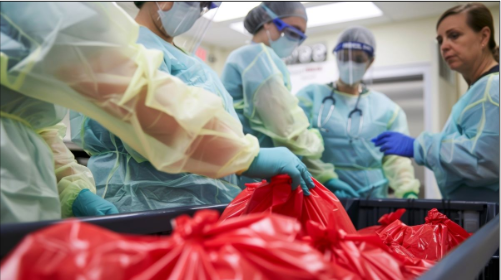In today’s healthcare landscape, the safe disposal of medical byproducts is critical for both public health and environmental sustainability. Effective pharmaceutical waste management ensures that expired, unused, or contaminated drugs are disposed of in compliance with strict regulations. Without proper handling, these substances can contaminate water supplies, harm wildlife, or contribute to drug misuse. The U.S. Food and Drug Administration (FDA), along with other regulatory bodies, plays an important role in setting guidelines to prevent these risks.
Why FDA Oversight Matters
The FDA oversees the approval, labeling, and post-market safety of pharmaceutical products. While its primary role is ensuring drugs are safe and effective for patients, its oversight extends into how these products are managed after use. This includes creating disposal protocols and providing guidelines for healthcare facilities, pharmacies, and manufacturers. By setting industry standards, the FDA reduces the chances of improper disposal that could pose environmental or public health threats.
Key Areas Of FDA Involvement
Safe Disposal Guidelines
The FDA provides recommendations for disposing of prescription and over-the-counter drugs. This includes the “flush list,” which identifies medications that can be safely flushed to prevent accidental ingestion, particularly opioids and other high-risk substances.
Collaboration With Environmental Agencies
While the FDA focuses on healthcare safety, it works alongside the Environmental Protection Agency (EPA) to ensure waste practices align with environmental protection goals. This collaboration balances patient safety with ecological sustainability.
Oversight Of Take-Back Programs
Drug take-back programs are a cornerstone of safe pharmaceutical disposal. The FDA supports these initiatives by promoting secure collection methods in hospitals, pharmacies, and community centers. These programs reduce the risk of drugs being misused or diverted while also ensuring environmentally responsible disposal.
The Risks Of Poor Waste Management
Improper handling of pharmaceutical waste can create numerous problems:
- Environmental Contamination: Active drug compounds can enter soil and water systems, harming ecosystems.
- Public Health Risks: Inadequately discarded opioids and antibiotics can contribute to substance abuse and antimicrobial resistance.
- Legal and Financial Penalties: Healthcare facilities failing to comply with FDA and EPA guidelines face fines, reputational damage, and liability issues.
Best Practices For Healthcare Facilities
Staff Training
Medical professionals must be trained on the latest FDA waste disposal protocols. This ensures compliance and reduces the chance of costly mistakes.
Segregation Of Waste
Facilities should maintain clear separation between hazardous pharmaceutical waste, non-hazardous materials, and general trash. This minimizes risks and improves disposal efficiency.
Secure Storage And Transport
Before disposal, waste must be stored in clearly labeled, tamper-proof containers. Transport to approved disposal facilities should be documented to maintain regulatory compliance.
The Role Of Technology In Waste Management
Digital tracking systems now allow healthcare providers to monitor pharmaceutical waste from creation to disposal. These systems ensure accountability and generate compliance reports for FDA and EPA inspections. Automation also minimizes human error and increases efficiency in high-volume facilities like hospitals and research labs.
FDA’s Role In Shaping The Future Of Waste Management
With the rise of biologics, personalized medicine, and complex drug compounds, pharmaceutical waste management is becoming more challenging. The FDA continues to refine its guidelines to address these evolving issues. Future oversight will likely focus on sustainable disposal technologies, stricter tracking requirements, and closer integration with environmental agencies.
Conclusion
FDA oversight plays a critical role in ensuring that pharmaceutical waste is managed responsibly and safely. From regulating take-back programs to providing disposal guidelines and collaborating with environmental authorities, the FDA helps balance healthcare needs with public safety and ecological protection. As medical innovation continues to advance, proper waste management will only become more essential. For healthcare providers, integrating these protocols into daily operations ensures compliance and reduces risks. And in the broader spectrum of healthcare waste, attention to biomedical management waste is equally important, as it highlights the need for comprehensive strategies that protect both patients and the planet.

